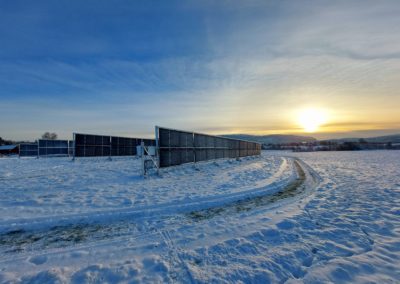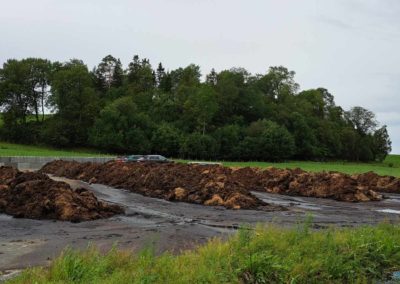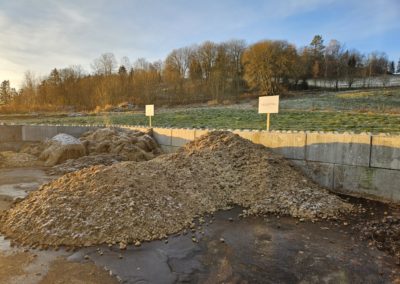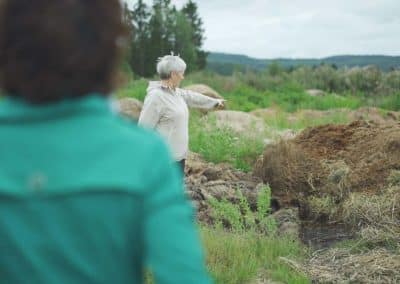With funding from KIL, the Mære agricultural school's development department has established a Rotlab, which will be an arena for disseminating knowledge about soil and soil structure, carbon storage in soil and how leaching of nutrients and soil particles occurs.
The root lab will be used in connection with courses and seminars for farmers, as well as for students at Nord University, the adult education students and our regular students. Our experience is that knowledge building takes place best when the course participant is an active participant in the training. With Rotlaben, we want to further develop our training offer with practical and surprising demonstrations.
Tour of the root lab:
Root propagation
We want to be able to show the root distribution of different plants and how soil structure affects the distribution of the roots. Since a lot of roots store more carbon in the soil than plants with a small root system, it is desirable that the roots are allowed to spread around. Soil compaction prevents root spread and reduces the ability to store carbon in the soil. Dense soil also creates a greater risk of surface runoff and soil erosion, so that soil and nutrients disappear and often end up in watercourses.
Good soil structure results in increased yields. Plant roots do not thrive in dense soil and waterlogged soil. If a more porous soil structure can be achieved by using catch crops, the yield can be increased, fertilization can be reduced and the yield per hectare can be improved.
Catch crops
Various catch crops, such as ryegrass, clover and more, will prevent the run-off of nutrients and increase the storage of carbon in the soil. Catch plants will hold the soil together during autumn and winter and increase the uptake of CO2. The effect of the catch crops depends on plowing in spring, instead of plowing in autumn.
Biochar
Biocoal is a soil conditioner that helps preserve the carbon content in the soil, and which has positive effects on the water balance in the soil. The latter has a lot to say in periods of drought. Trøndelag County Council wants to build a biocoal plant either on or near Mære during 2021.
Teaching material
In addition to film and the physical root lab at Mære, a booklet on carbon storage in soil and an associated assignment booklet.
In addition, a training plan, one Power Point presentation on the storage of carbon in soil, and a schematic representation of the content in the root lab.




